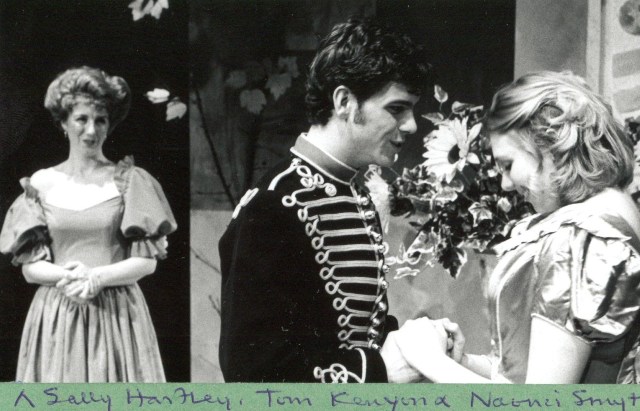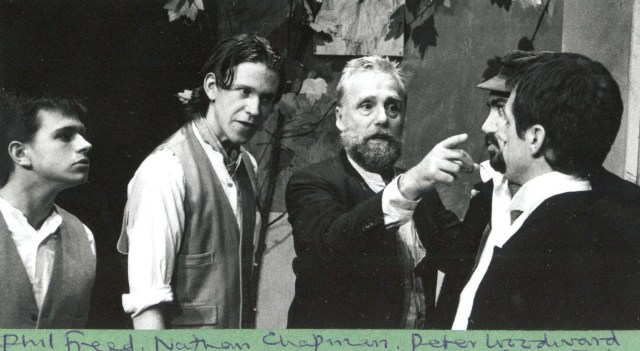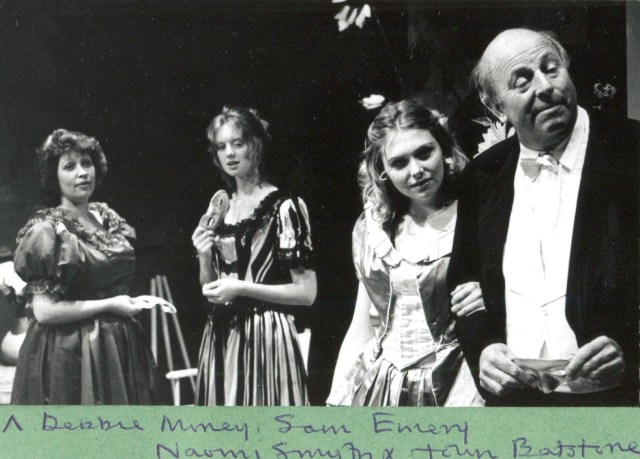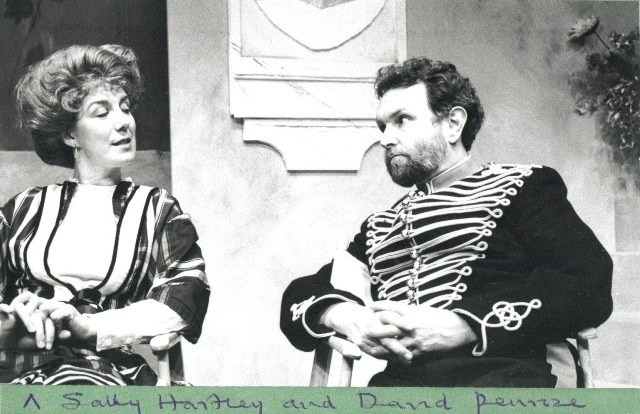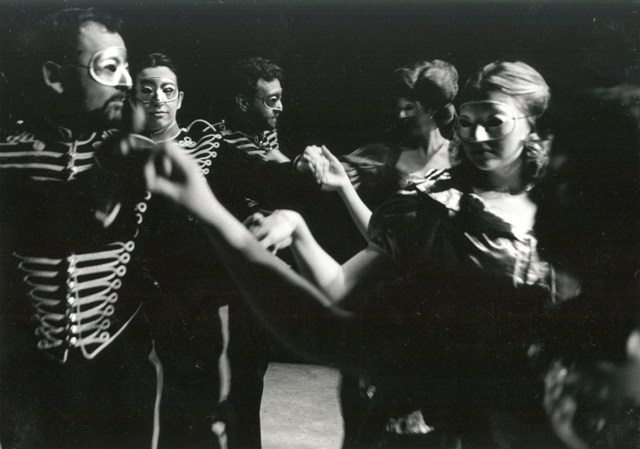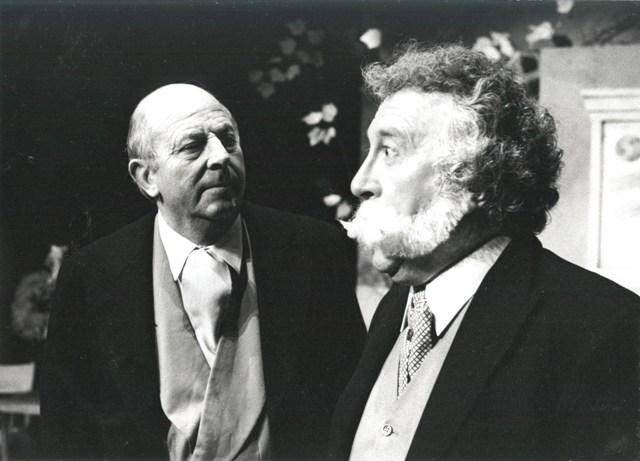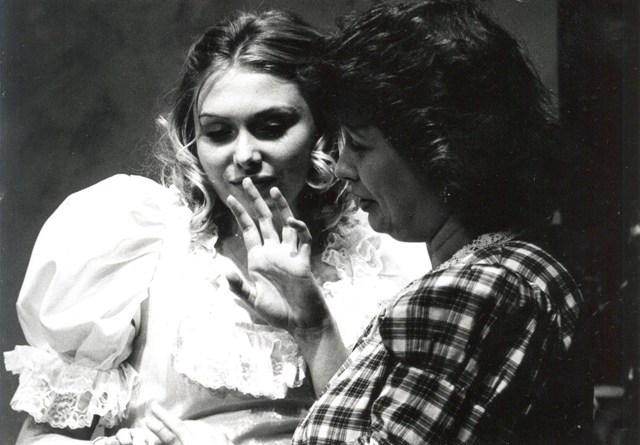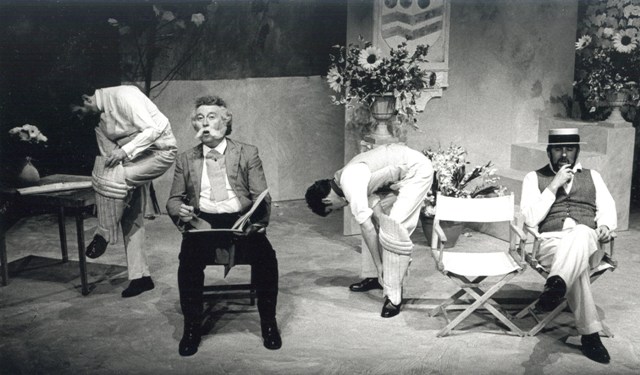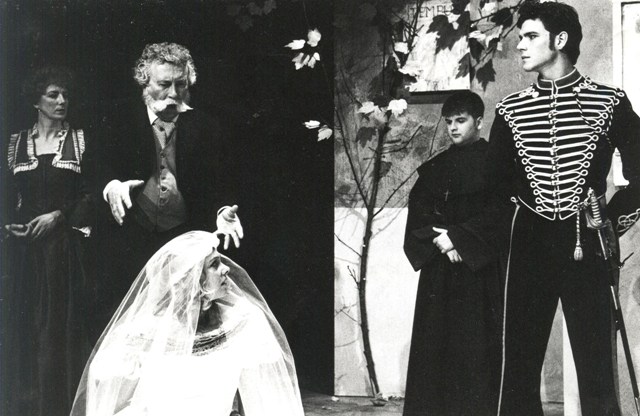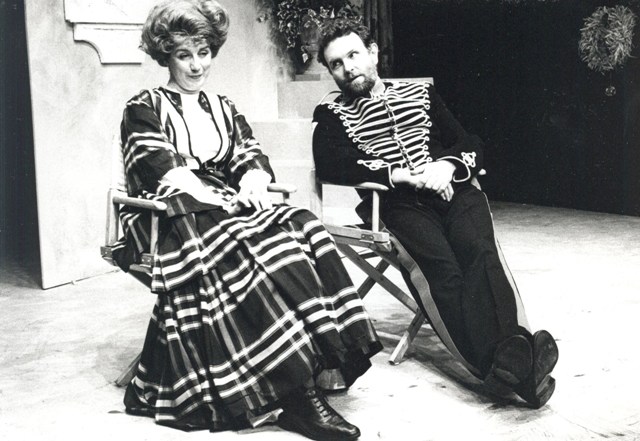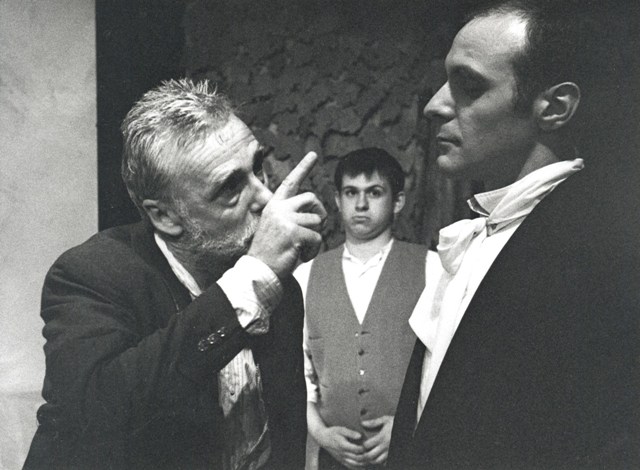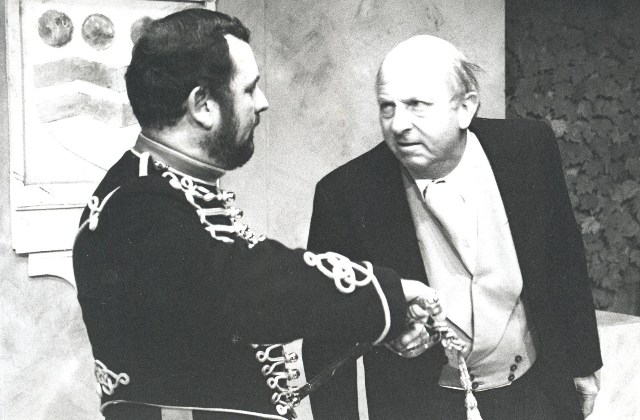The Bench Production
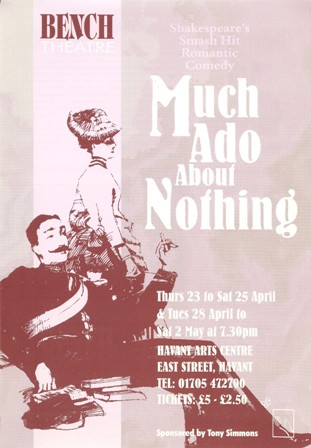
This play was staged at Havant Arts Centre, East Street Havant - Bench Theatre's home since 1977.
Characters
| Leonato (Governor of Messina) | Peter Corrigan |
| Antonio (Leonato's brother) | John Batstone |
| Hero (Leonato's daughter) | Naomi Smyth |
| Beatrice (Leonato's niece) | Sally Hartley |
| Ursula (Hero's companion) | Debbie Money |
| Margaret (Hero's companion) | Sam Emery |
| Don Pedro (Prince of Arragon) | Alan Welton |
| Count Claudio | Tom Kenyon |
| Benedick | David Penrose |
| Balthasar | Gary McNie |
| Don Pedro's Messenger | Simon Walton |
| Other Soldiers | Philip Feed Nathan Chapman |
| Don John (Don Pedro's half brother) | Mark Wakeman |
| Borachio | Steven Foden |
| Conrade | Simon Norton |
| Constable Dogberry | Pete Woodward |
| Verges (Dogberry's deputy) | Damon Wakelin |
| First Watchman | Mike Hickman |
| Second Watchman | Philip Freed |
| Watchman Seacoal | Nathan Chapman |
| The Sexton (Francis Seacoal) | Simon Walton |
| Friar Francis | Mike Hickman |
| A Musician | John Speller |
Crew
| Director | David Penrose |
| Choreographer | Annie Baillie |
| Dance Music by | Nigel Hess |
| Songs arranged by | Nick Reynolds |
| Stage Manager | Damon Wakelin |
| Assistant Stage Managers | Mike Hickman Phil Chapman |
| Lighting Design | Jacquie Penrose |
| Lighting Operation | Ingrid Corrigan |
| Sound | Tim Taylor |
| Costumes | Simon Walton Sue Walton |
| Set Design | David Penrose |
| Front of House | Ali Bullivant |
| Publicity Design | Pete Woodward |
| Photographs | John Plimmer |
| Programme Editor | Andrew Caple |
Director's Notes
When Shakespeare wrote this play he was quite obviously obsessed with the soldiers and the smoke of battle. He had just finished the two Henry the Fourth plays and was probably already working on Henry V. The time is somewhere between 1598 and 1600. It is easy to see 'Much Ado' as a piece of light relief between wars, and it is, certainly, one of his warmest, most forgiving examinations of human folly, flanked by his heavier preoccupations with nationalism and the nature of kingship in the great History cycle. But in many ways, he sticks to his theme.
Whether Prince or commoner, what are a soldier's responsibilities to society when there are no battles to fight? How do the ritual codes of military honour equip a man for survival amongst civilians? How do military men, trained to meet the territorial imperative, cope with women whose own training has been more concerned with the social imperatives of pairing-off and procreation?
'Much Ado About Nothing is about soldiers with nothing to do and what women have to put up with when soldiers get bored. Elizabethan England was just as familiar as our own day with the collision of the sexes being seen in military terms - 'the battle of the sexes' was already commonplace. In Shakespeare's day, the elaborately dressed soldier-courtier, well-practised in dance, song and poetry, must have sparred in the queen's court with equally skilled woman of wit and intelligence.
This production moves the quarrel forward to a world perhaps made more familiar to us through current popular culture than the late sixteenth century - to the mid-Victorian world. Army officers of the period were often dashing, courtly and better dressed than anyone else in mixed company, but capable of urbane, ritualised cruelty when solely in their own company. Women of wit and intelligence at the time were forced, like Beatrice, to watch and comment from the sidelines, close enough not to be deceived by the immaturity of much male behaviour but powerless to do much other than disconcert their male peers with barbed criticism.
I hope you enjoy the production.
David Penrose
Reviews
The NewsMike Allen
Clean, direct and glowing bit of a do
For almost two acts Bench Theatre's Much Ado seems to slumber in the Sicilian sunlight. Of Shakespeare's sparring wouldn't-be lovers only Sally Hartley as Beatrice delivers her barbs with spirit. David Penrose is too world-weary for words - as if weighed down by his cares as director.
Then Penrose the actor puts some pep into a soliloquy - and Penrose the director tips buckets of the stuff into the pas-de-quatre among the flower arrangements as three male friends dupe Benedick into believing Beatrice loves him. From then on, he develops a mischievous charm to counterpoint her tactile warmth, and subtle directorial touches begin to enrich some well-measured acting. The linguistically-challenged Dogberry is all the funnier for Peter Woodward's degree of under-statement.
The youthfulness of talented pair Tom Kenyon (Claudio) and Naomi Smyth (Hero) is effectively set against the maturity of the two Bs. But Claudio needs to be a bit more brutal in his initial rejection of his bride to give the play its essential brinkmanship - of comedy that could so easily be tragedy. Some in the cast must learn not to shuffle or gabble, but in the end, this is a clean and glowing Much Ado. Until May 2.
The News, 24th April 1998
